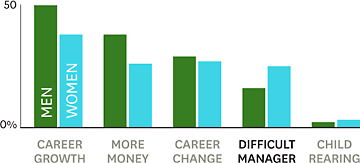巡回させて頂いているブログでアメリカにおける人種差別の話について書かれていたので、前に読んでとても感心した黒人と白人の関係に関するエントリーを紹介(是非全文読んでいただきたい):
My Race Essay: What Whites Say Behind Blacks’ Backs « Colin Blog
著者は黒人が支配的なセントルイス出身で自らの経験から何故黒人に対する「差別」がなくならないのかについて論じている。まず現状については次のように述べている。
One such uncle of mine noted […] America is generally an “equal opportunity country.” I wouldn’t go that far, but this is how most white people feel and I think the truth is somewhere in the middle.
基本的に機会は平等に近づいている。これは私の感覚にも一致する。アファーマティブアクションが議論になるよう、教育などにおいて明らかな差別はない。
In my school, there was no systematic exclusion of the black students from excelling in academics. Most of the black students excluded themselves.
学校教育において、黒人が差別を受けているという事実はなく、むしろ彼らが勝手に勉強から離れていくとかかれている。その例として、黒人がほとんどの高校で微積分を取る黒人がいなかったこと、高校を卒業しているのに字が読めない歌手が挙げられている(アメリカの識字率の現実については前に書いた)。実際大学において黒人の比率は非常に低い(うちの大学は特に低いため時折批判に会う)。また白人と黒人は社会的にも早いうちに分離する:
But somewhere along the line, 5th or 6th grade, the white and black students started to segregate themselves.
これは大学になっても続いている。多くの大学生は自分の人種のグループから出ようとしない。小学校あたりで既に分かれているのならその傾向も不思議はない。
では何故「差別」はなくならないのか。これについて著者は自らがレストランでサーバーとして働いた時の経験から説明している。少し長いがまとめて引用しよう:
I have a theory to explain why blacks often suffer discriminatory treatment in society. From my experience in the restaurant service industry, servers and bartenders will tell you that black people don’t tip. This is bullshit. I used to argue that the average gratuity percentage of all black customers, while certainly lower, is not much lower than the average percentage from all white customers. The difference is negligible given low gratuities from rural white people and elderly white people.
But those ghetto white people aren’t such a pain in the ass. They’re in and out. Servers don’t remember them. Nor do servers remember the nice black family that was easy to take care of and left 20%. They remember the ghetto black table that sent back their food for trivial reasons, asked for free samples, complained to a manager, or were a major pain in the ass in some other way while not leaving a tip. The treatment I have gotten from ghetto black tables is simply unconscionable. You don’t get that from any other kind of people. Only black ghetto. Even black servers don’t want to wait on black tables. I was the guy that used to argue that waiting on blacks is not as bad as people make it out to be. And even I would get a feeling in my stomach when I saw a black table sit down in my section. Just the chance that this black table could be a black ghetto table could completely ruin my night.
掻い摘んで説明しよう。黒人客のチップが他の(同じような社会経済的ステータスの)グループに比べすくないわけではない。しかし、チップを払わない客のほとんどは単に食事してさっさと帰るだけなのに対し、一部の黒人客は大した理由もなく食事を突き返し、無料サンプルを要求し、マネージャーに文句を言うなど非常に面倒なことをした挙句チップを置かずに帰る。この体験が余りにも酷いのでサーバーは黒人の客が来ただけでもしかしたらその客がそういう客なのではないかと思ってしまう。
That feeling is uncontrollable. You can’t teach someone not to feel what has been conditioned into their system through experience, like a dog getting its face rubbed in shit after pooping in the house.
そしてこれが繰り替えされると、人間は自分の感情をコントロールできなくなってしまう。
My theory is that discriminatory treatment stems from people trying to thwart or discourage the triflin’ behavior of the ghetto segment. Imagine how police officers, whose exposure to black ghetto must be much higher, could come to treat all black people. Unfortunately, non-ghetto black people are often subject to the backlash against ghetto black people when they are not to blame. They are being treated unfairly. In my view, one third of the black population is fucking it up for everybody.
黒人の一部が余りにも酷いため、多くの人はそれに対策を講じる。ある路地に黒人が集まっていればそれなりの確率でそれが犯罪に結びつくかもしれないので避ける。これは極めて合理的な行動だ。観察できない情報(危険かどうか)が分からないのでそれと相関している他の観察可能な情報(黒人である)を利用しているに過ぎない。そしておそらく人間は単に相関している出来事にも恐怖感といった感情を持つようにできているのだろう(いちいち考えているよりも生存に有利だ)。だがこれは他の心理的問題とは異なる。なぜなら頭で考えたとしてもこの行動は(本人の利得を最大化するという意味で)正しいからだ。
しかも是非はともかく正そうとしても難しい。学歴「差別」を表面上禁止するのは簡単だ。単に求職者に学歴を聞くのを禁止すればよい。学歴はシグナルなので禁止するのは非効率的だろうし、実際に執行するのは困難だろうが理論上は可能だ。しかし黒人に対する「差別」を禁止するのは非常に難しい。肌の色は見れば分かるのでその情報を利用しないように強制することはできない。実際、黒人に多い名前を書いた履歴書を企業に送るとごく標準的な名前で同じ履歴書を送った場合よりも企業から反応がある可能性が有意に低いことが知られている。企業は少しでも観察不可能な情報と相関している情報を意思決定に利用する。
I can’t think of how normal, mainstream black people can disassociate themselves with the ghetto segment in order to receive normal treatment. The black ghetto segment is so triflin’ that the mere presence of a black person can cause worry in worrisome types.
ではまともな黒人はどうやってこの構造が抜け出すのかという疑問が掲げられている。これはそういう黒人を観察していれば分かる。多くの、ここでいうghettoでtriflin’な、黒人は大きなTシャツにダブダブのジーパンを腰ばきし、キャップやフッディー、指輪・ネックレスなどを着ている。それに対してまともな黒人はそれと限りなく反対の着こなしをする。Tシャツはほとんど着ないし、着てもサイズをきちんと合わせる。大抵はYシャツ。ジーパンもぴっちりとしたものを履くし、チノパンであることも多い。シャツはタックインしてしばしば上にはジャケットだ。スーツを着ている人も多い(これはカリフォルニアでは非常に珍しい姿だ)。しゃべり方もまったく異なる。アメリカの多くの黒人は特徴的なしゃべり方をすることが多くなかなか聞き取れないのに対し、彼らは他の人種よりもわかりやすいしゃべり方をする。オバマの演説なんかがいい例だ。
ではこの問題はどうやったら解決するのだろうか。「差別」が黒人であるという情報に基づいて異なる行動をとることを意味するなら上述のように極めて困難だ。「差別」的な行動により不利な扱いを受ける黒人に対する補償が目的であればアファーマティブアクションが該当するだろう。しかしこれは「差別」自体をなくすのには役に立たない。また、他にも観測不可能な情報と相関する特性を持っているがゆえに不利な扱いを受けているグループは存在する。
根本的な解決には、「差別」自体に対処するのではなく、通常の福祉政策・教育政策・再配分政策によって問題となっている層を何とかするのが唯一の対策だろう。人種によって明らかな優劣は存在しない以上、これらの政策によりいつかは人種との相関は消えていくはずだ(逆に言えば本質的な違いが存在しているタイプの「差別」に関してはこの方策は効果がない)。

